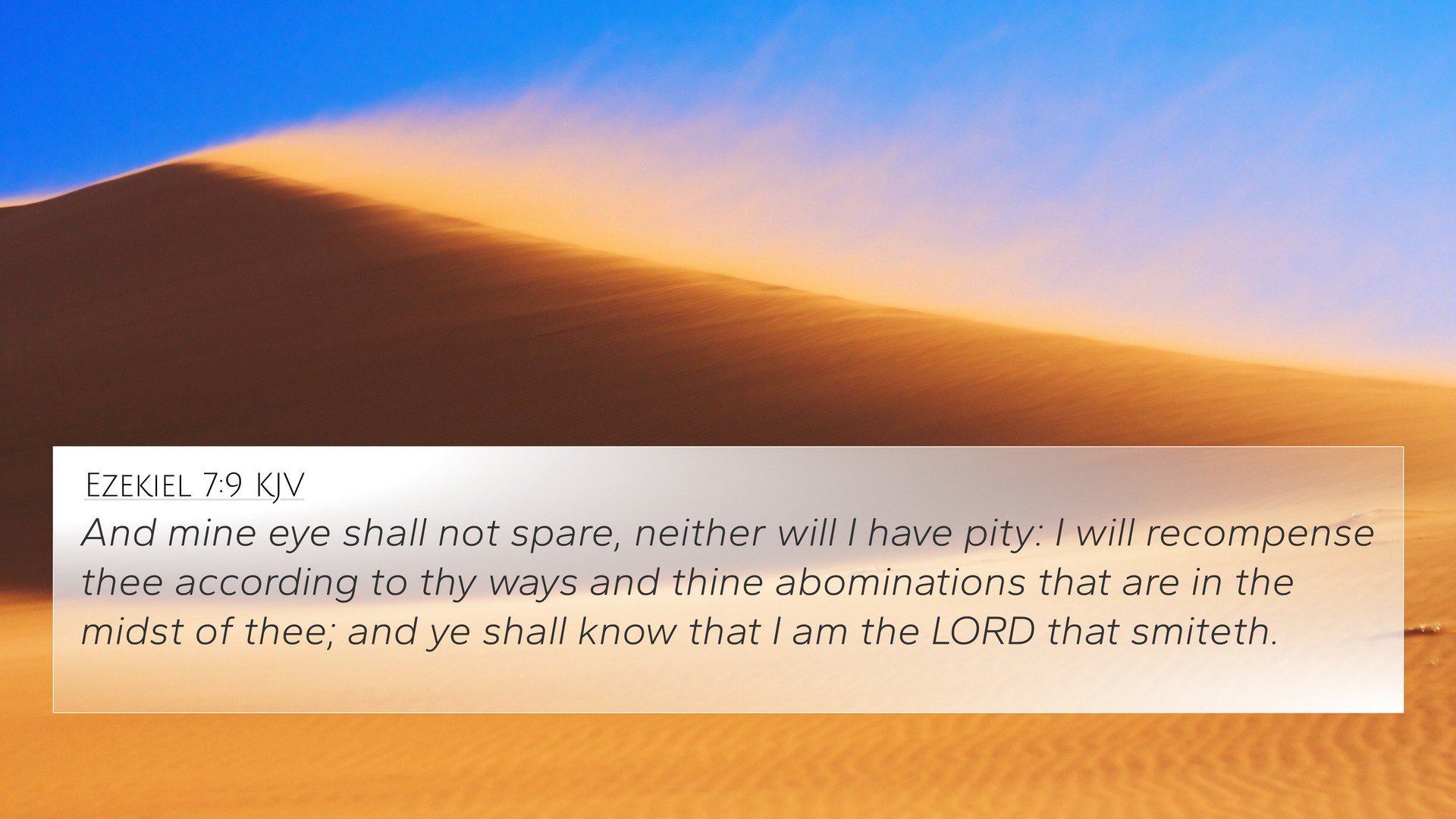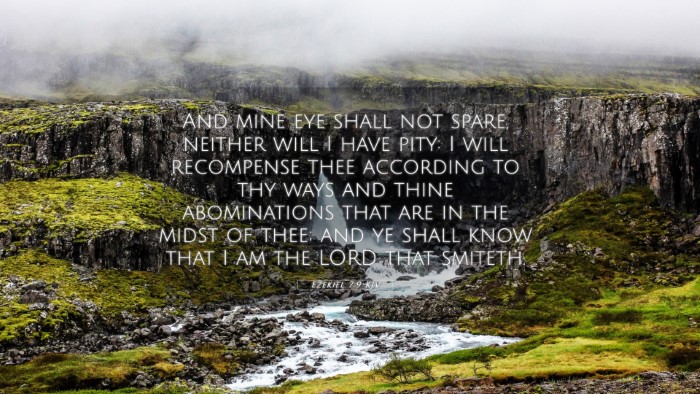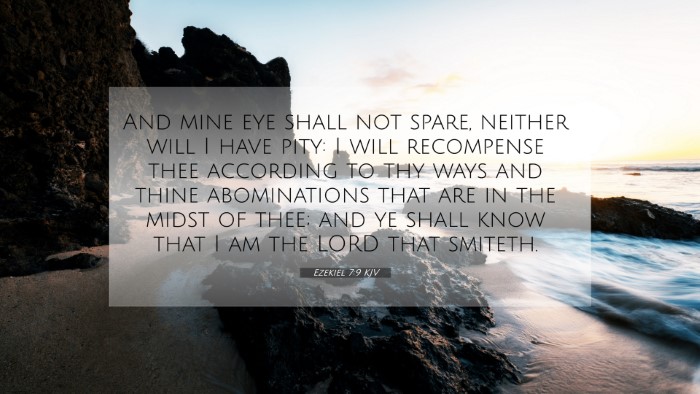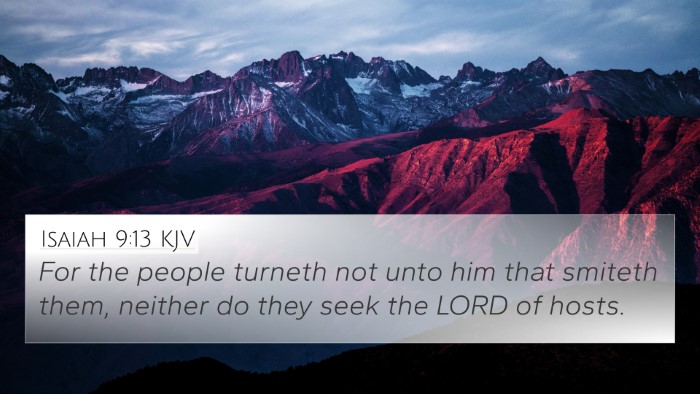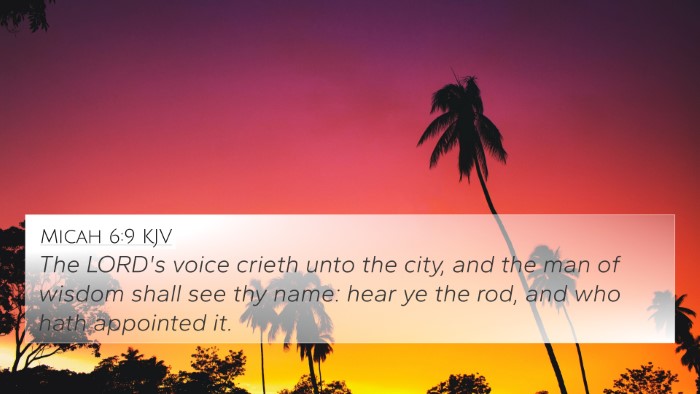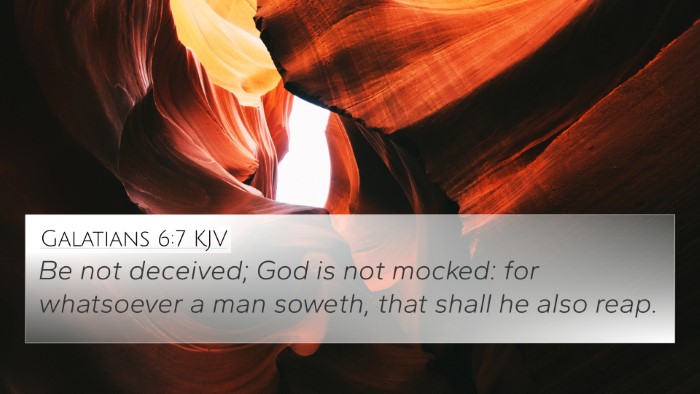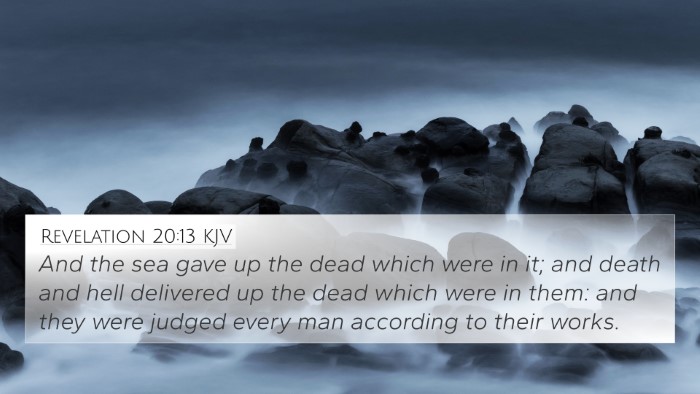Ezekiel 7:9 - Understanding the Verse
Ezekiel 7:9 states: "And my eye shall not spare, neither will I have pity: I will recompense thee according to thy ways and thine abominations that are in the midst of thee; and ye shall know that I am the Lord that smiteth." This verse emerges in a context of prophecy concerning the impending judgment upon Israel due to their persistent sinfulness and wickedness. It serves as a somber reminder of God's justice and the consequences of disobedience.
Verse Analysis
This passage from Ezekiel reflects a profound theme prominent throughout the scriptures: the certainty of divine judgment for unrepentant sin. The verse encapsulates God's unwavering justice, a theme explored by various commentators.
-
Matthew Henry:
Matthew Henry emphasizes God’s impartiality in judgment. He underscores that the Lord will not show mercy where there is ongoing rebellion against Him. The phrase "my eye shall not spare" signifies God's keen awareness of their sins and implies that judgment is not arbitrary; it is measured against their actions and the abominations they have committed.
-
Albert Barnes:
Albert Barnes comments on the concept of recompense contained in the verse. He interprets it as a divine principle whereby every individual will reap the consequences of their actions—this is a reflection of God's just nature. He also notes the finality in God’s declaration, indicating that acknowledgment of His sovereignty comes only through experiencing the reality of His judgment.
-
Adam Clarke:
Adam Clarke provides insights on the relational aspect of the divine justice portrayed in Ezekiel. He suggests that the phrase "ye shall know that I am the Lord that smiteth" points to a recognition that transcends mere acknowledgment; it embodies an understanding of God's authority and the severity of sin's consequences. Clarke elaborates on the covenant relationship that Israel had with God, highlighting the gravity of their infidelity.
Thematic Connections
This verse establishes significant thematic connections with various other scriptures that address divine justice, retribution, and the consequences of sin. Below are key cross-references that illuminate these themes:
- Numbers 35:33-34: Discusses the land becoming defiled through murder and sin, indicating that God’s judgement is rooted in both moral and sacramental purity.
- Isaiah 1:16-17: A call to repentance, emphasizing that God desires justice and righteousness, paralleling Ezekiel's message about the deep consequences of sin.
- Jeremiah 25:29: The certainty of judgment is reiterated here as God calls all nations to account for their actions, highlighting the universal extent of His authority.
- Hosea 4:9: This verse expounds on the principle that those who are in leadership and position of influence will also share in the judgment for leading others astray.
- Romans 2:6: Paul articulates that God will 'repay each person according to what they have done,' reinforcing the same principle of retributive justice found in Ezekiel.
- Galatians 6:7: Advocates the irrevocable principle of sowing and reaping, corresponding with divine justice reflected in the actions individuals take.
- Hebrews 10:31: Warns of the dreadful fate that awaits those who reject God, underlining the severity with which God responds to unrepentance.
- Revelation 20:12-13: Highlights the final judgment where all are accountable for their deeds, mirroring the justice theme present in Ezekiel's warning.
- Psalm 94:23: Indicates that God will bring retribution upon the wicked, illustrating the timelessness of His justice.
- Matthew 7:2: Jesus speaks on the measure with which we judge, reflecting God's exacting nature of judgment shown in Ezekiel's proclamation.
Conclusion
In conclusion, Ezekiel 7:9 serves as a powerful reminder of God's righteous judgment and serves to warn the people against the dire consequences of their actions. The insights derived from noted commentators elucidate the depth of this verse, encouraging readers to reflect on their own ways in light of God’s holiness and judgment. This verse, along with its connecting scriptures, provides a comprehensive view of divine justice that permeates the biblical narrative, reinforcing the importance of accountability in our relationship with God.
Understanding Cross-References
Engaging in Bible verse cross-references allows for deeper understanding of scriptures. Here are some tools and suggestions for effective cross-referencing Bible study:
- Bible Concordance: Utilize a concordance to locate verses that relate thematically or contextually.
- Bible Cross-Reference Guide: These guides help discover links between verses across different books and contexts.
- Cross-Reference Bible Study: This method encourages exploration of relationships between scripture for more profound insights.
- How to Use Bible Cross-References: Learning to identify and apply cross-references can enrich personal or communal study.
- Bible Reference Resources: Digital tools and applications can aid in finding and tracking cross-references easily.
